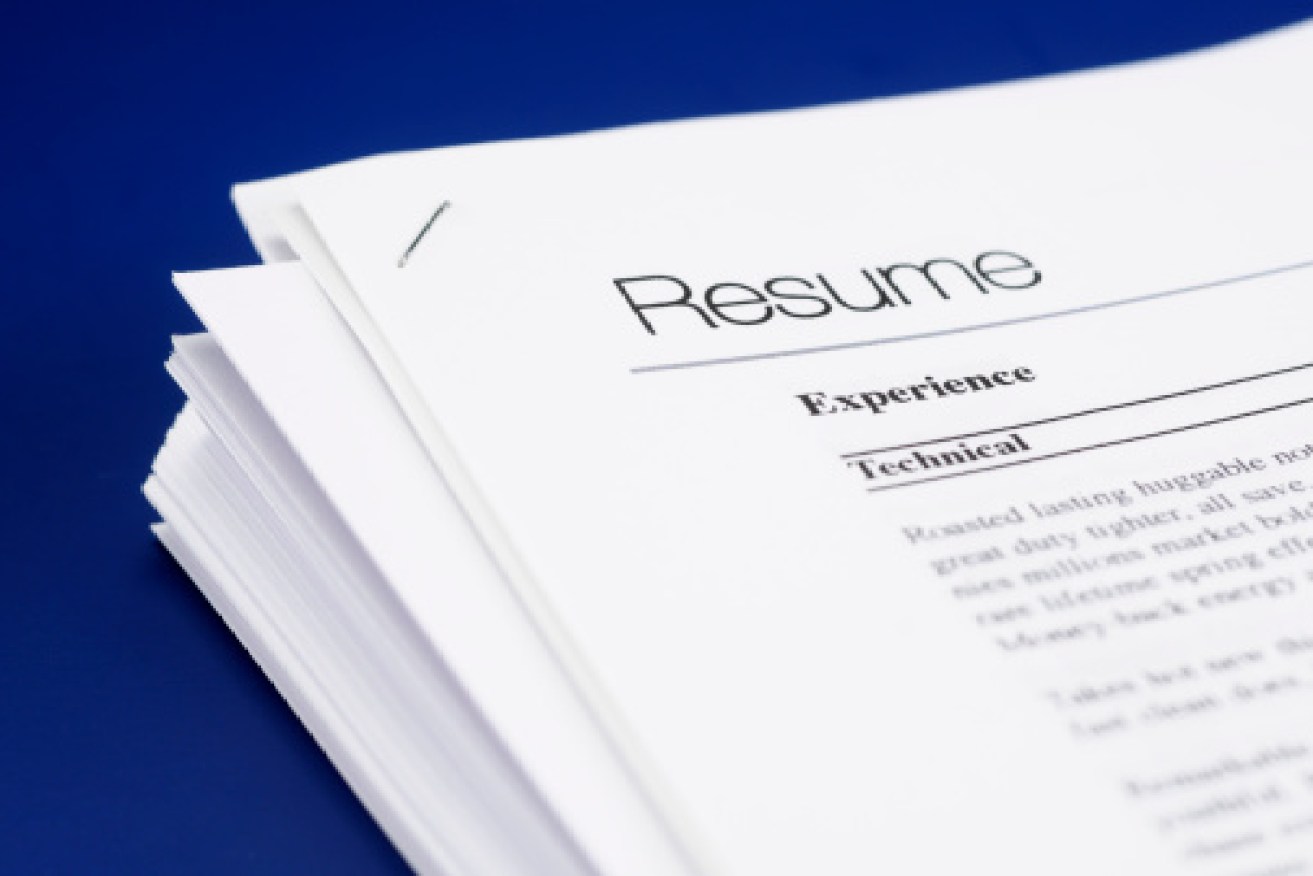How to write the perfect cover letter and resume to get a job

Taking the time to work on your resume is really important for securing an interview. Photo: Getty
A cover letter and resume are key ways to show a potential employer that you are perfect for the job you are applying for.
Essentially, it is a marketing tool to highlight your skills, qualifications, education and personality.
If it is poorly presented or grammatically incorrect you may not even receive an interview.
How do you write the perfect cover letter?
A cover letter highlights your appropriateness for the job which targets the specific employer. Essentially, it sells your resume and urges the employer to read on.
It should be separate from your resume and display how you are qualified for the job and the reasons you are applying for it.
It is recommended you go through the advertisement and underline the skills that are needed for the job. This way you can strategically place those key words throughout your cover letter and highlight the examples of how you display them.
The opening paragraph should explain why you would love to work at the company by highlighting your knowledge of the business. Keep it succinct and get to the point.
The body should identify your qualifications and skills with examples of how you have used them in past experiences.
The closing paragraph should reaffirm why you are the perfect person for the position. State how you would love to meet in person to discuss your application.
What should be included on a resume?
- Contact details
- Overview about yourself
- Educational qualifications
- Employment history
- Internships and volunteer work
- Key skills
- References

On your resume, list the tasks and projects you’ve completed at your internship to demonstrate your value to the job. Photo: Getty
How long should a resume be?
According to Business Insider, recruiters spend an average of six seconds reading a resume.
Therefore, it is best for it to be short but concise. A concise resume will grab the employees attention and highlight the key information they must know about the applicant.
Hays Regional Director Claire Forsyth says the length of CV should roughly be an A4 page.
“Remember the recruiter reviewing it has most likely gone through a number of CVs already that day so by keeping it to the point they’ll be able to remain focused,” Ms Forsyth said.
“Too many words on a page can be a distraction from your strong points.”
Should you customise your resume for a job?
Although it takes more time, customising your cover letter and resume will pay off.
It helps recruiters and employers identify key elements of how your skills, experience and values align with the company. This will increase your chance of landing an interview.
“A good tip is to start your CV generic, listing all your previous roles and experience and tailor it from there,” Ms Forsyth said.
“Take key words and ‘must haves’ in the job description and see which ones match yours and emphasise them.”
Remember to prioritise the information. Put your most recent jobs first with detailed descriptions and keep your later jobs brief.
Are internships and volunteer work vital?
Internships and volunteer work are important to the recruiter. They demonstrates that the applicant is motivated and proactive enough to enhance their skills in their own time.
“With the job market so competitive, an internship or voluntary work will only help you in your job search so we would advise doing so,” Ms Forsyth said.
“Employers are highly concerned about employing people who lack the technical skills and experience required but by taking on an internship or voluntary work, you show employers that you have a great attitude towards work.”
Internships and volunteer work also allows you to gain first hand exposure into the industry and help you transition into full time work.
They can also develop your professional network and lead to future job opportunities.
According to Forbes, a study by the National Association of Colleges found that 60 per cent of respondents in paid internships received at least one job offer.
Should references be placed on a resume?
Ms Forsyth says to always include two references. This may be a former employer, a lecturer or someone who can provide a character reference.
“Employers mostly want to see references from the people you reported to directly. This is so they can probe for information such as your strengths, weaknesses and the things you enjoy and dislike,” Ms Forsyth said.







